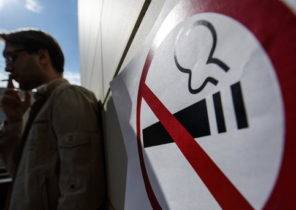On Sunday night, examining magistrate No. 1 of the Catalan city of Lleida issued a decree on cancellation of quarantine and isolation, was declared by the government of Catalonia. New ban for citizens to leave the house was to come into force at 00:00 in the night from Sunday to Monday in the city of Lleida and the seven other municipalities of the district Segria, where about 160 thousand people. The inhabitants of these cities had permanently “stay at home”. At the same time to go out only allowed to go to work, in cases of care of children or elderly people, visiting the doctor or buying food. Entry and exit from the city was also supposed to be limited, with the exception of business trips and also for medical services or funerals.
The judge, however, felt that the government’s proposed measures are impractical. He recalled that it was “a state competence, which is implemented with the guarantee of participation in the adoption of such decisions of the Parliament”. The resolution reads as follows: “In any case, in accordance with article 5 of the constitutional law 4/1981 of 1 June “On emergency situation”, the head of the government of Catalonia can only be requested from the Spanish government to declare the area an emergency”. Cause for alarm is: in the area Segria recorded one of the strongest outbreaks of coronavirus in Spain since the abolition of quarantine in mid-June that forced the Catalan government to take decisive action. Nevertheless, the court found their actions unlawful.
“The proposed government measures are not only impractical, but is based on estimates and subjective judgment, which makes this solution excessive. Moreover, the alleged administrative action has not been properly painted,” says lady judge. According to her, the government could adopt other measures in accordance with Catalan law on civil protection — for example, “enter quarantine only for individuals with symptoms coronavirus, or only recommend to follow the self-isolation to the rest of the population.”
The report of the government of Catalonia, which States that the spread of the disease is “serious” in nature, did not seem credible to the judge. “The report is not sufficiently detailed, is not explained, what does “serious” nature of the spread of the disease and the degree of seriousness. Not spelled out, the grounds on which government members made this conclusion. Thus, this solution is not justified,” concludes the judge in the ruling.
Adopted on July 4, restrictions on entry to and exit from the dangerous terrain did not stop the growth of infections. This Sunday, the Catalan government announced on 816 new cases in Catalonia, the majority of which was in the area Segria, where the outbreak was registered 1500 cases among workers of fruit and vegetable companies in the midst of harvest. In just 24 hours it was 190 new cases. At the moment it is difficult to track the spread of the virus.
According to the Minister of health of the Alba Verger, a ban on entry and exit has reduced the transmission rate from 1.9 to 1.2, but it was not enough, so it was necessary to take measures limiting social contacts. The Minister admitted that the government had assessed the appropriateness of the company’s harvest, which attracts about 30 thousand seasonal workers in the area, as well as in the district bordering Aragon.
The restrictions announced this Sunday Alba Verges and interior Minister Michel Buchem meant the return of the region to the zero phase — that is, to complete the isolation. The judge’s decision may be appealed within 15 days. This happened after the chief Prosecutor of Lleida Juan bonnet filed at Investigating court No. 1 the statement that the quarantine is under the jurisdiction of the state of Spain, not local authorities. After several hours, the judge Elena Garcia-Munoz adopted the rationale of the Prosecutor and the courts rejected the decision of the government of Catalonia. In the Official Bulletin already published a resolution, signed by the Ministers of health and the Minister of internal Affairs.
The government of Catalonia was planning to release from quarantine only those who can’t work from home, and employees of essential services. It is also planned to close the sports facilities (swimming pools, sports halls) and cultural centers (libraries, theatres, cinemas). And, of course, to limit the classes of group sports. It is also planned to prohibit the Assembly of more than 10 people, both indoors and outside, as well as weddings, religious services and funerals.
Stores according to their plan were to be opened, but you can go there it would be by appointment only. Bars and restaurants are also planned to be left open, however, to work they would for home delivery. Summer entertainment places for children and young people remain open, but all participants must live in the region. During a press conference in Liege Verges repeated several times: “We must break the chains of transmission of coronavirus. You need to limit all contact with the outside world.”
Thus, according to Verges, the measures meant the introduction of quarantine in eight municipalities where there is a “very strong” increase in the number of cases (Lleida, Alcarras, Aitona, La Granja de Escarpment, Metalcore, Zeros, Sauces, Torres de Serge and’s “sux,” and Rimat). Despite this, political leaders have vowed that these measures are not a “total quarantine”, but rather serve to avoid it.
According to the mayor of Lleida, Mr. Mikel of Poao, total quarantine would have “serious economic consequences” in the area. “Now the situation is extremely serious,” he insisted, and demanded to guarantee the payment of salaries to the workers that “within 15 days” will not be able to leave this zone or Vice versa to get to its territory.
At a press conference Mikael Buch has said that the government decision must be approved by the court. According to the law, without declaring a state of emergency, the administration could not accept the decision to restrict the free movement of citizens. “Now we are working together with the courts to resolve this issue,” said Buch in the second half of the day. “We have no doubt that the court will give us the necessary permission, as it already took place last week,” he added, referring to the resolution on the closure of borders in the region Segria. The government of Catalonia also managed to impose a quarantine in the Conca d Orden March 12, before the Spanish government introduced throughout the country a state of emergency.
According to Bucha, addressed to the judges of the petition referred to the “epidemiological data and their impact on human health”. He also seriously said: “Let’s be aware of what is happening. Tomorrow, the disease can spread further. Let’s be careful.”
The situation with the pandemic in Lade sometimes deteriorates. The main district hospital Arnau de Vilanova forced to send critically ill patients to Barcelona to free up space in the ICU. This Sunday at the hospital he opened the third floor for 19 patients. Currently it is planned to open another center in the hospital of Santa Maria. In the ICU received 14 people, whose average age is 56 years. According to Verges, in Segrei the percentage of people with a positive test result for coronavirus is 35% compared with 5% or 10% in the rest of Catalonia.
On Monday morning Prime Minister of Spain Pedro sánchez will meet with the Committee for control of the situation with coronavirus, to discuss the situation in Liege and other outbreak of the virus in Spain, as well as the state plan for preparedness and response to new outbreaks, prepared by the Ministry of health.







